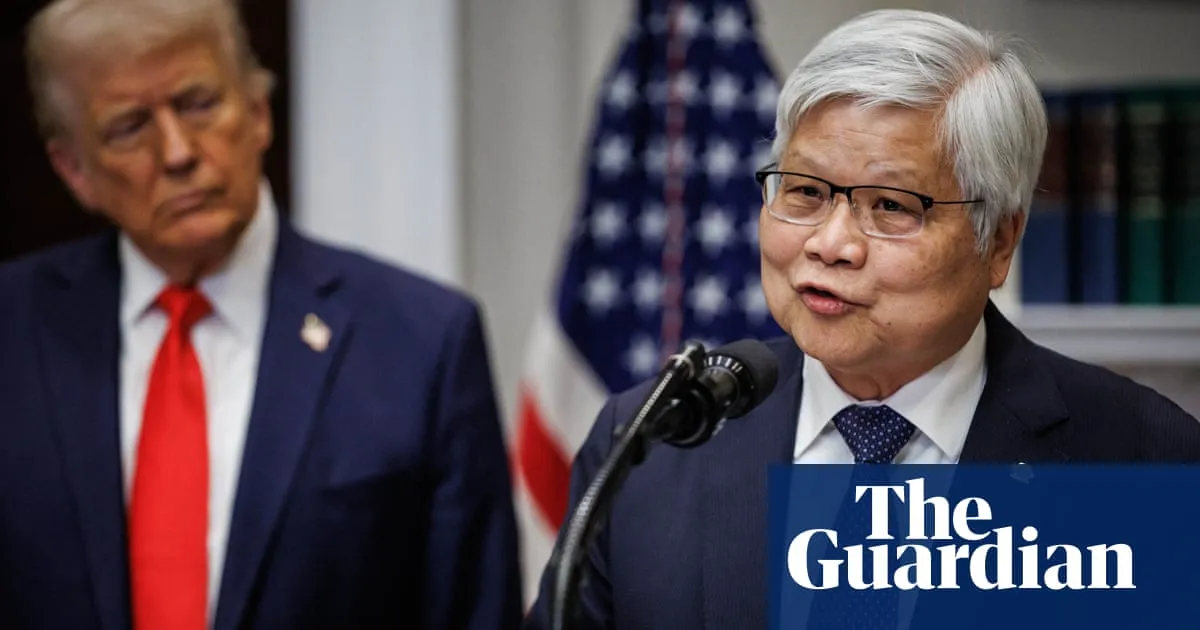
In a momentous announcement at the White House, TSMC CEO CC Wei stood alongside former President Donald Trump, revealing what is touted as the largest foreign direct investment in US history. This ambitious deal will see TSMC, a leading manufacturer of advanced semiconductors, significantly enhance its existing $65 billion presence in the United States with an additional investment of $100 billion. This decision not only helps TSMC avoid hefty tariffs on the global chip industry but also promises to create tens of thousands of construction jobs in the US, paving the way for essential technology developments on American soil.
The implications of this investment extend beyond economic gains. As TSMC establishes a more substantial footprint in the United States, it mitigates the risk of losing crucial technology to potential geopolitical tensions, especially the threat posed by China should it attempt to annex Taiwan. However, the deal is not finalized yet; Taiwanese law mandates that TSMC must seek government approval for any foreign investment exceeding $1.5 billion. In light of this, Taiwanese President Lai Ching-te has assured that the government will evaluate the deal with national interests in mind.
The announcement has raised eyebrows among members of Taiwan’s opposition party, the KMT. They express concerns that TSMC’s increased production in the US might diminish Taiwan’s geopolitical importance and potentially reduce the United States' incentive to defend Taiwan in the future. KMT legislator Ko Ju-Chun highlighted this sentiment, noting that “the more TSMC produces in the US, the less incentive the US will have to help Taiwan.” TSMC is a cornerstone of Taiwan's economy, contributing approximately 15% to its GDP and serving as what many consider Taiwan’s “silicon shield” against external threats.
While President Lai’s office has promised to retain TSMC's most advanced manufacturing capabilities in Taiwan, this assertion appears to conflict with statements made by Wei and Trump during their White House meeting. Wei indicated that TSMC would be producing the “most advanced chip on US soil,” and Trump emphasized that “the most powerful AI chips in the world will be made right here in America.” When queried about what constitutes the “most advanced tech” to remain in Taiwan, the Taiwanese economic affairs ministry suggested that the focus would be on nurturing local talent through their acclaimed STEM training programs.
According to the ministry, Taiwan's success in the semiconductor industry heavily relies on its pool of highly skilled professionals—an advantage that is challenging for other nations to replicate. Kwei-bo Huang, a diplomacy professor at Taiwan’s National ChengChi University, has pointed out the necessity for the Lai administration to address public concerns regarding the potential erosion of Taiwan’s silicon shield amidst this investment.
Faced with mounting local pressure for clarity, President Lai and CEO Wei held a press conference to address the public's concerns. Wei described his recent experiences meeting two presidents as “stressful,” and acknowledged the need for transparency about the investment. Both leaders emphasized that this deal marks a “historic moment” in US-Taiwan relations and reassured the public that the investment would not compromise TSMC’s domestic operations. They consistently maintained that the expansion was driven by rising customer demand from the US, without addressing the contentious issues of tariffs or the implications for Taiwan's security.
As the global chip industry continues to evolve, the deal between TSMC and the US presents both opportunities and challenges. The Lai administration must navigate the complexities of this investment carefully, ensuring that the balance between economic growth and national security is maintained for the sake of Taiwan's future.